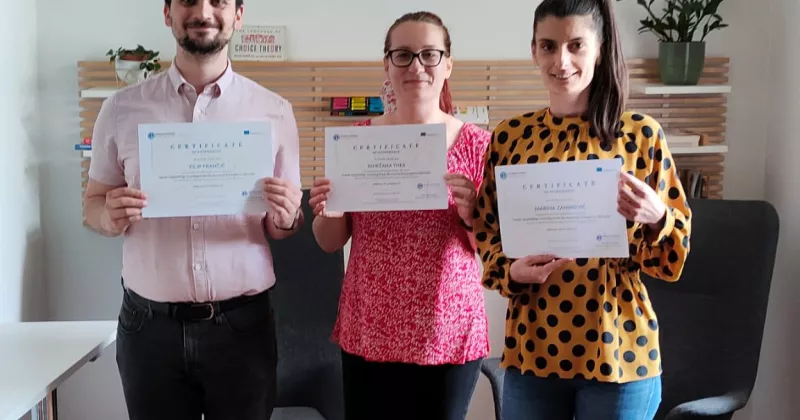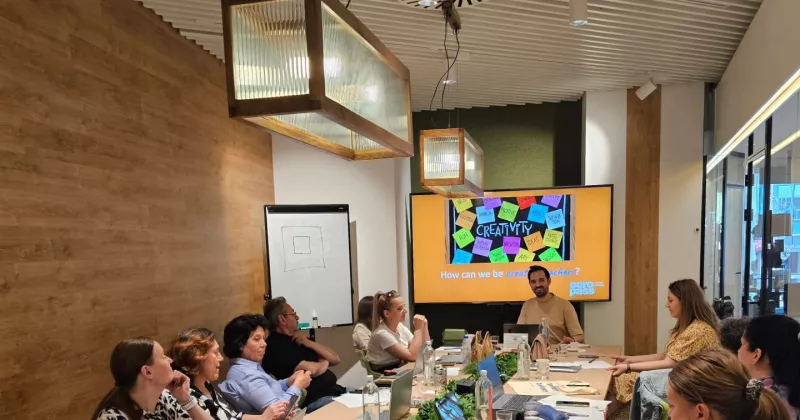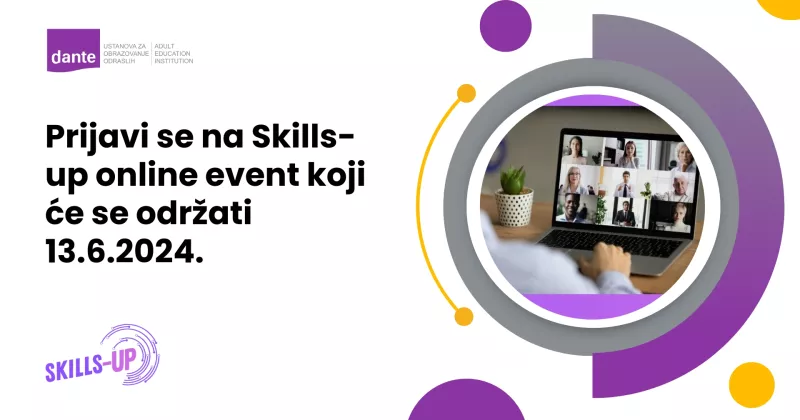Wim Ipers: Am I an incorrigible optimist? Guilty as charged.

Short bio
I graduated as a translator and interpreter and worked as a teacher in adult basic education for Ligo Brusselleer since 1998. I am also an award-winning self-made playwright and theater director, specialising in setting up hyperdiverse grassroots-level co-creative theatre productions. I have now acquired 25 years of expertise in working in prison and with people in prison, in both an education and a cultural context.
My story
Humankind seems to be blessed and/or cursed with chronic short-term memory failure. We easily forget and thus stumble into our next catastrophe before we know it. Or just as readily storm headfirst into new adventures and uncharted territory, forgetting we repeatedly crashed off our bikes and into trees. For a species that has produced Mozart, Marie Curie, Nadal, Einstein, Jeanine De Bique, and Shakespeare… to name a few, it would be daft to say we’re a freak of nature. For a species that just as inevitably produced Stalin, Thatcher, Pol Pot, and Bloody Mary, it would be stupid to claim we’re at the pinnacle of creation, the best universe has ever produced.
But haven’t we progressed at all in that short span we’ve been here? I do think the answer to that has to be yes. Hans Roslings thoroughly researched the book ‘Factfulness,’ which states that the proportion of the world population living in extreme poverty has almost halved in the last 20 years. Worldwide, 30-year-old women are closing the gap with their male counterparts in the number of years spent in school: on average, 9 years to 6 years only 25 years ago. Unfortunately, in my area of expertise, prison education, stats continue to look very bleak indeed: the global prison population is increasing (8m in 2002 to 11.5m today), a 50% increase in incarcerated women since 2000, underfunding of justice is getting worse, suicide rates are growing…
Then why am I still teaching and trying to co-create theatre plays in Brussels’ prisons after 25 years? Because I am an incorrigible optimist? Guilty as charged.
But also because, on a small scale, I have witnessed several changes for the better. Moving to the new prison in Haren took us from the dark Middle Ages straight into the 21st century, with modern infrastructure and equipment and no overcrowding (yet!). Prison directors and staff are finally genuinely trying to put a humane approach into practice daily. A new job has even been created to that end: prison counsellor. Specific training for prison counsellors, however, is still embryonic. They are all too often thrown in the deep end.
Well-trained Flemish and French-speaking public officers go out of their way to guarantee basic human rights in all the fields that we take for granted outside prison walls: education, sports, mental health, culture, and drug counseling… True; we are still far from the best pupils in class, but we seem to have finally turned the corner.
As one of the most inspiring ways to speed up these fledgling improvements is going abroad searching for best practices, I was lucky enough to accompany a large Belgian delegation to the bi-annual EPEA conference in June in Tønsberg, Norway. I visited the world’s best prisons in Bergen and Bastoy, listened to inspirational keynote speakers, exchanged best practices with fellow prison teachers worldwide, and was lucky enough to do a workshop on incorporating drama techniques in prison classes. I was able to share some of the insights and techniques that were developed by Augusto Boal, the Brazilian theatre pioneer and founder of Theatre of the Oppressed.
The Norwegian trip has renewed my enthusiasm and given me a sense of international support and solidarity. Yes, you’re doing ok. Of course, you can do better. But no, you’re not on your own.
The way I see it, the future of adult learning in prison hinges on three key challenges:
- make sure a humane and restorative philosophy is at the heart of all decision-making processes
- provide small-scale, differentiated, and society-embedded living units
- train the trainers/counsel the counsellors/teach the teachers to professional standards that also prevail outside prison walls.
And be patient. Very patient. Rome wasn’t built in one day. Prisons will not be ‘unbuilt’ in one decade.
Or as that other theatre great, Peter Brook, put it: "Anything worth investing in isn’t finished in a lifetime."

Skills for the future
- CAR-skills (communication + assertiveness + resilience)
- ‘portable’ skills (problem-solving, adaptability, teamwork …)
- ‘Philosophy’ skills: seeing the bigger picture, self relativism, sense of humour, critical thinking






Интересно
Интересно